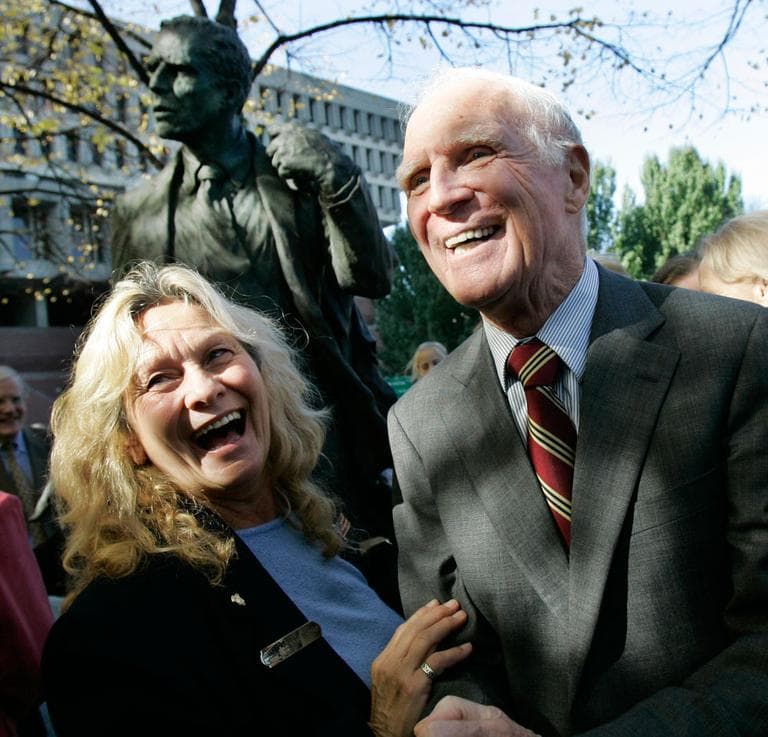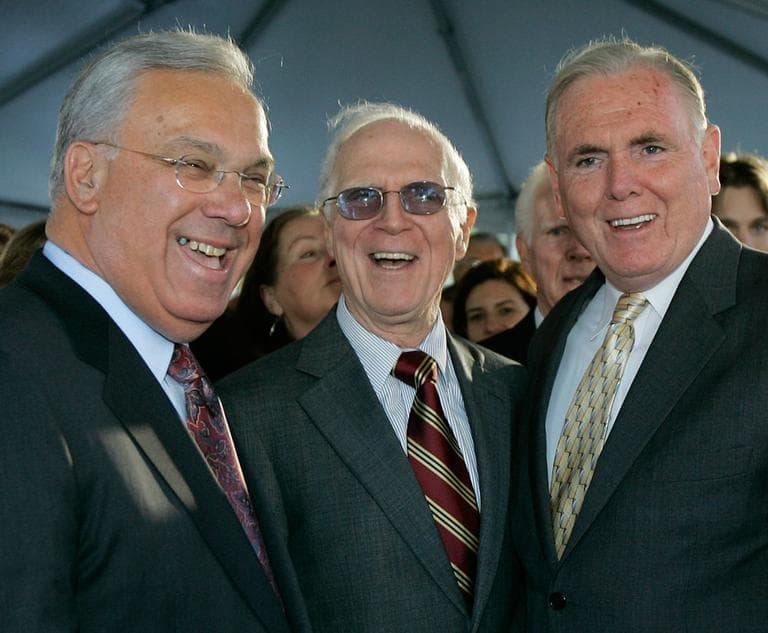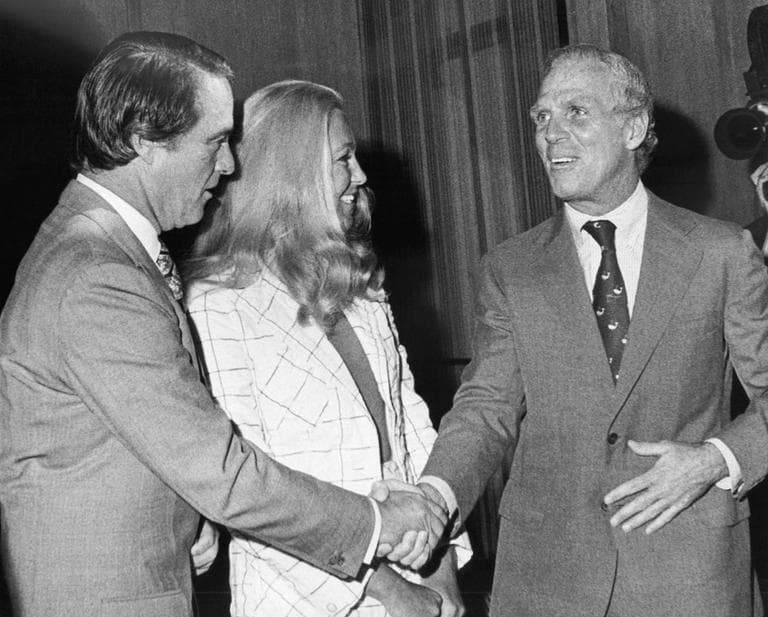Advertisement
Former Boston Mayor Kevin White Has Died At 82
Former Mayor Kevin H. White, who led the city for 16 years, including racially turbulent years in the 1970s, died Friday, a family spokesman said. He was 82.

White, who had been diagnosed with Alzheimer's disease in 2003, died peacefully at his Boston home surrounded by his family, spokesman and friend George Regan said.
"He was a man who built Boston into the world-class city it is today," said Regan, who called his loss "devastating."
"Kevin brought a lot of vitality," current Mayor Thomas Menino said. "He had a tremendous staff that worked around him his first few terms and they went on to greater heights. He had that special personality, that charisma that a lot of elected officials don't have.
"He left a special mark — what a mayor should be doing is changing the city for the better, making it a better place for people to live," he added.
White, a white Irish Catholic from a family of politicians, is credited with revitalizing Boston's downtown and seeing the city through court-ordered busing, but he ended his four-term tenure in 1983 under a cloud of ethics suspicions.
White, a Democrat, was elected Massachusetts secretary of state three times before running for mayor for the first time in 1967 against antibusing activist Louise Day Hicks. He defeated her with support from the black community and liberals.

After losing a 1970 bid for governor, White was re-elected mayor in 1971, again defeating Hicks. He won again narrowly in 1975 and 1979.
White was considered as a vice presidential running mate to Sen. George McGovern in 1972 but was passed over for Missouri Sen. Thomas Eagleton, who was later shunted aside for R. Sargent Shriver Jr.
After U.S. District Court Judge W. Arthur Garrity ordered busing to desegregate public schools in 1974, White protected schoolchildren from violence with federal and state assistance during the period of crisis and in 1976 led a march of 30,000 to protest racial violence.
White was never totally comfortable with busing, however, and called Garrity's plan "too severe."
"I wish I knew a way to have taught Garrity or convinced Garrity to be more generous ... or softer in his implementation of that order," White said after his time as mayor.
Larry DiCara was a city councilor during much of White's tenure and told WBUR that White worked to unite the city during that divisive period of school desegregation.
"[It was] brutal," DiCara said. "I think Kevin did his very, very best. He never tried to pit one group of people against another. The city rehabbed today as a result of his leadership and many others."

White's first two terms were known for his Little City Halls in the city's far-flung neighborhoods that gave power to ethnic and racial minorities, but he consolidated his power in his latter two terms.
Rep. Barney Frank worked in the White administration and considered White his mentor.
"He was nurturing, he was supportive, he would tell you what he thought you should be doing," Frank said. "He set the goal."
White closed the Little City Halls and instead used a network of ward lieutenants who rewarded the mayor's supporters with city jobs and contracts.
Seven mayoral aides were eventually indicted on fraud and extortion charges. His one-time budget director and an official of the Boston Redevelopment Authority were convicted of fraudulently obtaining city pensions. A deputy commissioner was convicted of tax evasion for failing to report money prosecutors said he gained from bribes.
White was never implicated. The State Ethics Commission, however, conducted a 10-month investigation that found "reasonable cause" that White had violated conflict-of-interest laws.
The city also wallowed in a financial crisis in the latter of years of his tenure that led to layoffs of police and firefighters and the shutdown of some stations.
The crises were exploited by his critics, who called him "King Kevin," and he dropped out of the 1983 mayoral race, eventually won by Raymond Flynn.
A liberal reformer, White appealed to a cross-section of society, including the young.
Once, when the Rolling Stones were arrested on the way to Boston, the mayor released them into his own custody.
"The Stones have been busted, but I have sprung them!" he told an audience at Boston Garden.
While the busing crisis brought a black spot to the city, White was also revitalizing the city's downtown, especially the shops and restaurants of Quincy Market, which to this day remain one of the city's top tourist attractions. He thought the downtown renaissance would make Boston a "world-class city."
White suffered a heart attack in 2001 while at a Florida restaurant and spent several days in the hospital when he had a pacemaker implanted. While mayor in 1970, he had major surgery to remove two-thirds of his stomach. A statue of White was unveiled near Quincy Market in 2006.
White's father and maternal grandfather had been Boston City Council presidents. He married Kathryn Galvin in 1956, the daughter of another Boston City Council president. He was educated at Tabor Academy, Williams College, Boston College Law School and the Harvard Graduate School of Public Administration.
After handing over the office to Flynn in 1984, White accepted a position at Boston University as a professor of communications and public management.
Following his passing Friday night, Sen. John Kerry, in a statement, said, "Kevin White’s own slogan is now almost a postscript, because now we all remember a leader who was ‘in love with the city.’ You think of Kevin White’s two great loves tonight, his wife of 55 years, Kathryn, and the city of Boston.”
Obituary by The Associated Press with additional interviews by the WBUR Newsroom
This article was originally published on January 27, 2012.
This program aired on January 27, 2012. The audio for this program is not available.